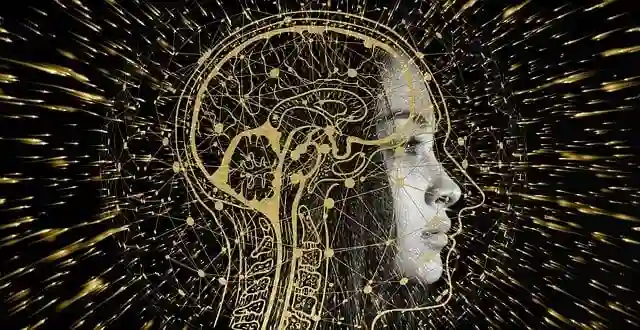The Dark Side of AI in Marketing: Understating the Disadvantages
The exclusive use of AI in marketing help businesses and firms improve their reputation in the saturated community. However, due to over-reliance on tools, the emerging negative consequences of using AI in the marketing industry are worth considering to mitigate them for better incorporation.

Artificial intelligence (AI) has dramatically transformed the world of marketing. It provides marketers with a powerful tool to reach their target audience more effectively than ever before. AI has the potential to revolutionize the industry by delivering personalized content and experiences, forecasting future outcomes with high accuracy, and enabling AI-driven content creation. Stats demonstrate that the value of AI in marketing, estimated at $15.84 billion in revenue for 2021, will increase to 107.5 billion by 2028. If we look at the stats of 2023 regarding the use of AI in marketing, the revenues are expected to grow by nearly $27.4 billion.
Although artificial intelligence has revolutionized the marketing industry and has a long way to go regarding the value, it's crucial to consider the potential drawbacks. AI in marketing industry presents a range of challenges that should be carefully considered. From high implementation costs to potential loss of human touch, AI in marketing has its fair share of drawbacks. According to a Survey, 56% of marketers believe that artificial intelligence would diminish creativity, influence differentiation, and reduce jobs, hence negatively affecting their brands. At the same time, 24% consider AI a positive move toward their marketing strategies.
In this article, we will explore the Dark side of AI in marketing and help businesses understand the potential risks involved in incorporating AI into their marketing strategies.
Potential Drawbacks of AI in Marketing
High Implementation Costs
We are aware of the fact that the crucial part of any business is its effective costs. For that purpose, using AI in marketing demands high investments and heavy budgets to incorporate AI-driven automation in their businesses. Many companies are struggling with the budget to enable AI into their systems, and such deployments are very costly, which is one of the biggest trials for them to do so.
So one of the significant AI marketing challenges faced by businesses, particularly small and medium-sized enterprises (SMEs), is the high cost of implementing AI technologies. Developing or acquiring advanced AI software, ensuring its regular maintenance and updates, and training staff can be much expensive, often resulting in a slower return on investments (ROI).

Loss of Human Touch
Over the past few years, we have been observing the exponential growth of using AI in marketing, from targeted ads to personalized experiences. While AI has a lot of benefits, the biggest disadvantage/dark side of its use is its contribution to the loss of human touch.
As AI systems are trained to analyze the data of consumers solely without understating their sentimental points of view. By doing so, the factor of depersonalization will emerge that not only devalue the customers but also results in the detachment of customers from the certain brand, which is a crucial need of any marketing industry.
So, AI-driven marketing can sometimes result in a loss of human touch that customers often appreciate in brand interactions. For example, while AI Chabot can handle simple queries efficiently and generate quick responses but they may fail to handle complex or emotionally charged situations that require human empathy and understanding, leading to customer frustration.
Data Privacy Concerns
There are a lot of controversies about the ethical concerns of AI in marketing. Firstly, AI is exposed to gathering information from the available data, so if the software is prone to wrong information, then it will cause a lot of ethical and secrecy issues.
Secondly, by using AI to collect customers' sensitive data, the concern of privacy arises in their minds, especially when they are not informed about their data usage. Consequently, AI in digital marketing relies heavily on collecting and analyzing vast customer data.
This can raise concerns about data privacy and security, as customers may be worried about sharing their personal information with businesses using AI-driven tools. The report shows that 94% of customers feel desperate about using their data. Data breaches and misuse can significantly damage a company's reputation and erode customer trust. Thus, a transparency gap may also occur.

Algorithmic Biases
AI algorithms are often trained on historical data, which can lead to biases being inadvertently built into the system. These biases can result in unfair or discriminatory marketing practices, alienating potential customers and damaging a brand's reputation.
For example, AI-driven ad targeting systems have been criticized for perpetuating gender and racial biases in job ads, leading to a lack of diversity in job applicants.
Consider another example of Tay Chabot launched by Microsoft. This bot was designed to answer various tweets. Over time, it starts making violent yet racist statements. Due to its biased behavior, Microsoft shut down the Tay bot from offering its services. The AI-powered bot was not trained to show biases; it got juggled with already presented data.

Dependence of Data Quality
Effectiveness of AI in marketing largely depends on the quality of the data it processes. AI systems mainly work according to the level of quality and quantity as well. It's pertinent that AI is rising in the marketing/ business industries because of one thing, which is good data quality. So whenever the system receives inaccurate data, it will certainly pose risks/ challenges to AI solutions.
Hence, Inaccurate or incomplete data corrupts the learning ability of the system, which can lead to faulty insights and poor marketing decisions. For instance, if an AI-based personalization system relies on outdated or incorrect customer information, it may recommend irrelevant products or services, negatively impacting experience and engagement, which will more likely damage the trust of consumers and the reputation of brands.
Limited Creativity
Limited or Lack of creativity is also a dark aspect of AI in content marketing. As AI technology has so many leverages to perform well, but when it comes to creativity, it lacks this power. Although AI has made significant strides in content creation, customer segmentation, and other areas of marketing, its ability to be genuinely creative is still limited, as humans can brainstorm certain strategies concerning customers' formal or informal behaviors based on empathy, frustration, and curiosity.
Being creative is the crucial element of any successful marketing campaign. By understanding human skills and powers, no comparison is left with AI. So, AI-generated content cannot comprehend emotions in content production and often lacks the emotional depth and nuance that human-created content possess, potentially leading to less engaging and less effective marketing campaigns. This is why many websites, blogs, and publishers still ensure that all their content is written by humans and will pass the best AI content detector.
Amplification of Fake News
Another downfall related to using AI in marketing is the amplification of fake news through AI-powered social media Algorithms. Misleading and misinformation are everywhere, and social media sites are popular for creating fake viral content. There are renowned websites like Facebook, LinkedIn, and Twitter where people share connections. They share a lot of information through these websites and thus become prone to some fake material.
For example, if two persons are close social media friends who trust each other blindly. The worst situation will happen when one of their friend shares information on social media that is not authentic, and his close friend find the information shared by his friend reliable because of trustworthiness. He will share that chunk of info with his friends. This rapid intensity of sharing news overflows social media with fake news and propaganda.
Now the question arises of how this could happen, so this problem is created by certain AI algorithms that social media marketing companies use. These algorithms are trained to identify conventional content that people usually look for and enable the customers to find the content of their taste and interest. So the biggest disadvantage of AI-powered Algorithms is that they often cannot distinguish between authentic and non-authentic material. So despite displaying righteous information, AI-enabled disinformation is decreasing consumers' trust in businesses.
Birth of Unintended Consequences through AI
Unintended consequences refer to actions and results that are not purposefully intended but unrelatedly happen in the end. Some sociological scholars refer to this term as the law of unintended consequences, in which people consider this term as unproductive or even harmful. So another dark aspect of using AI in digital marketing is to produce unintended consequences, as we know that AI algorithms are strong enough to automate their decisions regardless of human intervention.
Due to their strong and quick response, they often generate unforeseen outcomes such as harmful decisions for customers, offensive content creation, and false audience targeting. For instance, if the Algorithm used for content creation is not trained properly, then it will generate harmful content formation for the targeted audience, resulting in the downfall of companies' and businesses' reputations.
"AI can produce good results, but one must be careful about its unintended consequences." ~Satya Nadella, Microsoft CEO.
Fewer Jobs, More Unemployment
With the significant transformation of marketing through technology, another biggest challenge yet dark side of the excessive use of AI in marketing is a threat to replacing skillful human labor with AI, which results in job losses and unemployment. Many marketing industries benefit from AI, but the risks of job losses are far more than their benefits.
For instance, Retail industries are using AI models for self-checkout services in superstores, which are suppressing the job of cashiers by automation. So it's the fact that AI will greatly impact future jobs by replacing humans through tasks automation.

Lack of Accountability
When anyone uses AI, then they cannot separate themselves from its harmful effects. So, Lack of accountability is another dark side of AI in marketing. As mentioned above that AI Algorithms are trained according to conventional data. So if they find some data that is not accurate but biased, then AI-powered algorithms cannot differentiate the right one; hence results will be wrong or flawed. These problems can lead to ineffective campaigns and some other serious legal issues.
It is certainly challenging for Algorithms to judge and identify correct biases, especially when they are opaque. So, in this case, most industries don't have proper guidelines about this case. Due to a Lack of governance and guidelines, complex Machine Learning left marketers with the question of if an AI system flops then who will be responsible?
Lack of Knowledge
Another significant dark side of using AI in marketing is the Lack of enough knowledge of marketers. As the big marketers who own prestigious places in the company become very happy about the benefits of AI marketing operations and thus completely rely on tools, but they lack considering the challenges and risks related to the implementation of AI.
As we know that AI Algorithms are mastered with the provided knowledge and data, so whenever businesses need to update their marketing strategies, they must have to update AI Algorithms according to that knowledge. For that purpose, one must need enough investment to upgrade the tools. This Lack of management and knowledge often results in the catastrophe of resources, disappointment, and ineffective marketing.
Risky Deep Fake Technology
Marketers and other industrialists use deep fake technology powered by AI for image and video recognition. This technology is designed to work independently without any external interference. The tools allow marketers to create effective and less costly video campaigns by providing more personalized experiences. It benefits marketers in many ways, but with every technology, there is a risk, so with the use of Deep Fake and its impact on digital marketing.
If not trained well, this technology results in an increment in scams and fake customer complaints; for example, it can create fake videos and images which harm clients in a bad way, thus resulting in the loss of consumer trust in the company. Furthermore, marketers often misuse this AI technology for making faulty/ fake reviews to show their product is more reliable than its actual form, eventually falling into the unethical category.
So this manipulation of information and public opinions through the negative usage of AI technology puts the marketing industries at a greater risk of downfalls.
The Dark Side of AI in Marketing: A Final Glance into Future
The dark sides of AI usage are the emerging fear of marketers to gain success and profit. Still, considering its future, it is clear that the use of AI in marketing will grow faster because of its potential advantages and benefits for improving marketing strategies.
However, it is also guaranteed that ethical and privacy concerns will be the top prerequisite for the use of AI in marketing in the coming years. So we can expect the emergence of new technologies in the future, for example, new AI Algorithms that will be designed to address the ethical concerns in marketing with responsibility. Last but certainly not least, industries and business owners should address legal concerns by ensuring the proper use of AI. The AI marketing future is bright by harnessing the whole perspective of technology.
Concluding Thoughts
While AI offers numerous advantages to marketers, from automation to better decision-makers so it's essential to be aware of its potential downsides. The dark side of using AI in marketing industry results in many legitimate concerns, which are mentioned above. But these technologies will continue their role in future marketing. By understanding these disadvantages, businesses can make informed decisions about incorporating AI in marketing strategies and take the necessary steps to mitigate the potential risks. Furthermore, it's critically important to consider its responsible use by considering its potential impacts on society.



